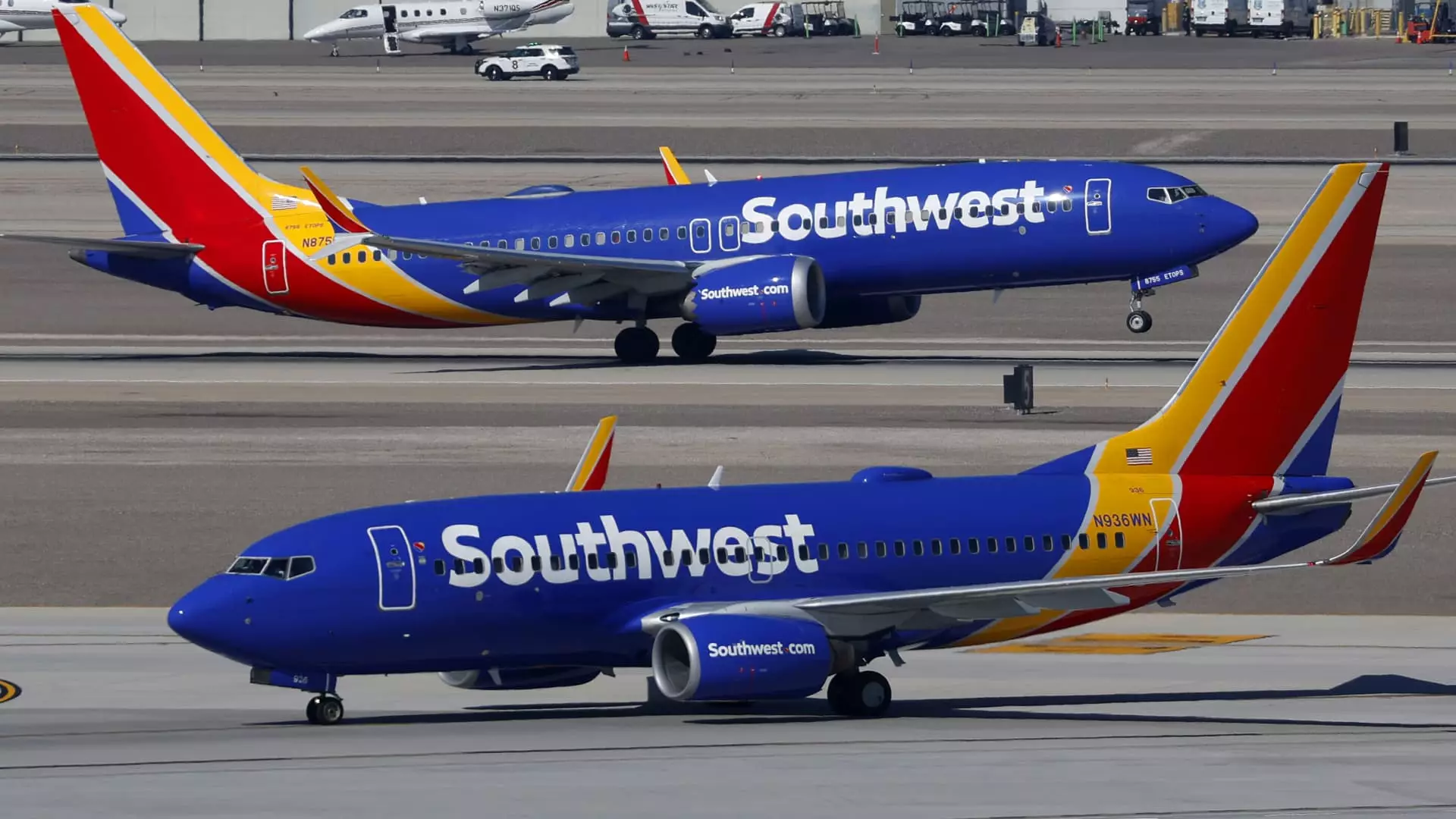For decades, Southwest Airlines has stood out in the crowded skies by championing open seating—a bold, customer-centric policy that allowed passengers to choose their seats upon boarding. This tradition fostered a sense of egalitarianism and laid the foundation for Southwest’s reputation as an airline that prioritized simplicity and customer freedom. Now, with a move scheduled for January 27, the airline is tearing down this longstanding pillar, trading it for a structured, assigned seating system. This transition signifies a significant departure from a core principle that distinguished Southwest from its competitors.
While the industry often touts innovations aimed at enhancing passenger experience, this development exposes a troubling shift: the prioritization of revenue enhancement over passenger comfort and loyalty. Assigning seats in advance introduces added complexity, potential discomfort, and a loss of spontaneity—elements that defined Southwest’s charm. Instead, the airline is embracing a structure designed primarily to maximize profit margins, aligning with broader corporate trends but at the cost of its once-reliable identity.
Profit-Driven Changes Masked Behind Convenience
The airline’s strategic overhaul appears driven, in part, by the necessity to stay competitive within a profit-oriented industry landscape. Southwest’s leadership projects the introduction of assigned seating as a way to improve boarding efficiency and, by extension, aircraft turnaround times—a pragmatic approach, perhaps, but one that also facilitates additional revenue streams. The move to assign seats correlates with the airline’s push to monetize every aspect of the travel experience, evident in their plans to introduce seat selection fees.
What’s troubling is that these fees—yet to be priced—stand to diminish the carefree, egalitarian spirit that customers once cherished. Instead of allowing passengers to decide spontaneously, Southwest is now segmenting its clientele based on loyalty and fare class, creating hierarchy and exclusivity. Loyal customers, particularly those who are elite members or pay for premium options, will gain early boarding privileges and access to preferred seating, further entrenching advantages for the most affluent. Meanwhile, budget travelers and families seeking flexibility may find themselves relegated to the back of the line or priced out of preferred seating options altogether.
This stratification, cloaked in the guise of efficiency and “customer choice,” ultimately favors revenue maximization over democratic access. It reflects a broader trend among major carriers—where loyalty tiers serve as revenue generators rather than genuine rewards for frequent flyers. Instead of fostering goodwill and relationships, the airline risks alienating those who value the spontaneous, egalitarian experience that once made Southwest unique.
The Implications for Customer Loyalty and the Travel Experience
The removal of the open seating policy fundamentally alters the social fabric that once defined the Southwest experience. Boarding the plane became less about racing for the best seat and more about the shared experience of a egalitarian process. Now, that shared experience is sacrificed at the altar of efficiency and revenue. Priority boarding and seat selection will replace the lively, unpredictable energy of the boarding scramble with a more segmented, hierarchical process.
This shift could alienate a significant segment of Southwest’s traditional customer base—families, groups, and spontaneous travelers who valued the ability to sit together without paying a premium. While the airline claims existing options will still cater to families and those who want control, the reality is that the new system introduces barriers to the inclusive environment that once thrived on the basis of fairness.
Furthermore, assigning seats in advance and monetizing seat choices threatens to undermine trust and goodwill. Passengers may begin to view Southwest less as an airline that cares about their experience and more as a provider of a commodity where convenience and cost are sacrificed for incremental revenue. This could have ripple effects on customer loyalty, brand perception, and long-term competitive standing.
The Cost of Prioritizing Profit Over People
Ultimately, Southwest’s transition reflects a sobering reality in the airline industry: profit margins have become the primary driver of strategic decisions, often at the expense of the passenger experience. While these changes might boost short-term earnings, they risk eroding the very qualities that made Southwest beloved—simplicity, transparency, and a focus on customer care.
The airline’s new policies suggest a diminishing commitment to fostering genuine connection and loyalty among its customer base. Instead, we see a calculated move to leverage loyalty programs and ancillary fees, effectively transforming a once egalitarian airline into a business more akin to its larger, less personal competitors. As travel continues to rebound from recent disruptions, such strategies could backfire by alienating core customers who cherished Southwest’s unique, down-to-earth approach.
In a time when consumers are increasingly attuned to corporate values and customer-centric policies, Southwest’s shift raises uncomfortable questions about authenticity and prioritization. Moving away from open seating might bring immediate revenue benefits, but it risks sacrificing the airline’s heart—its reputation as a democratized, friendly companion in the skies.

